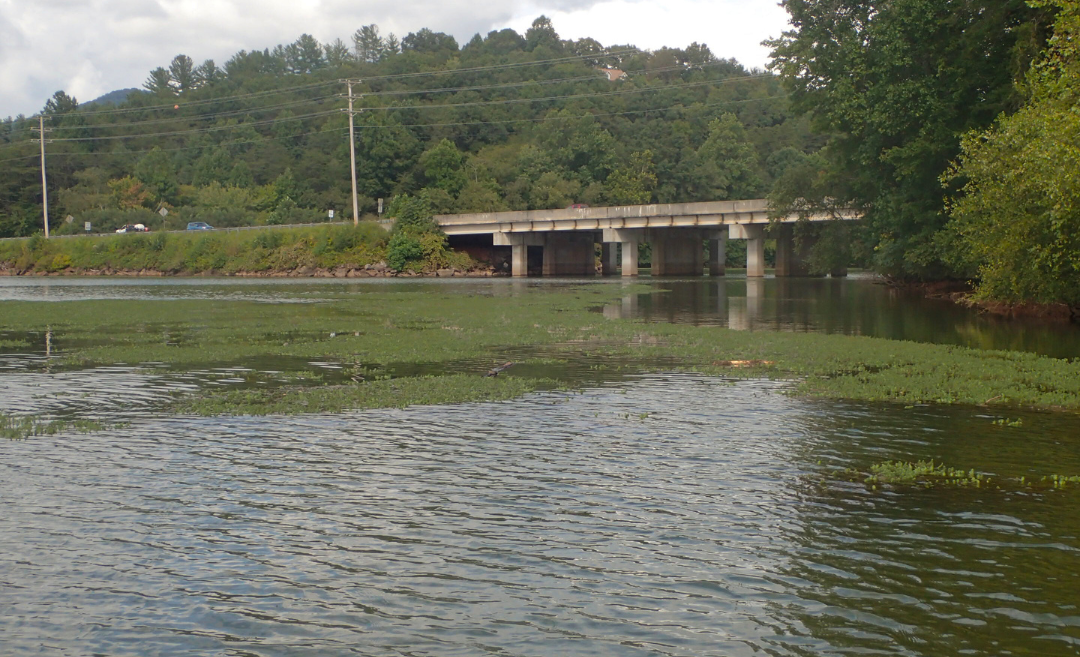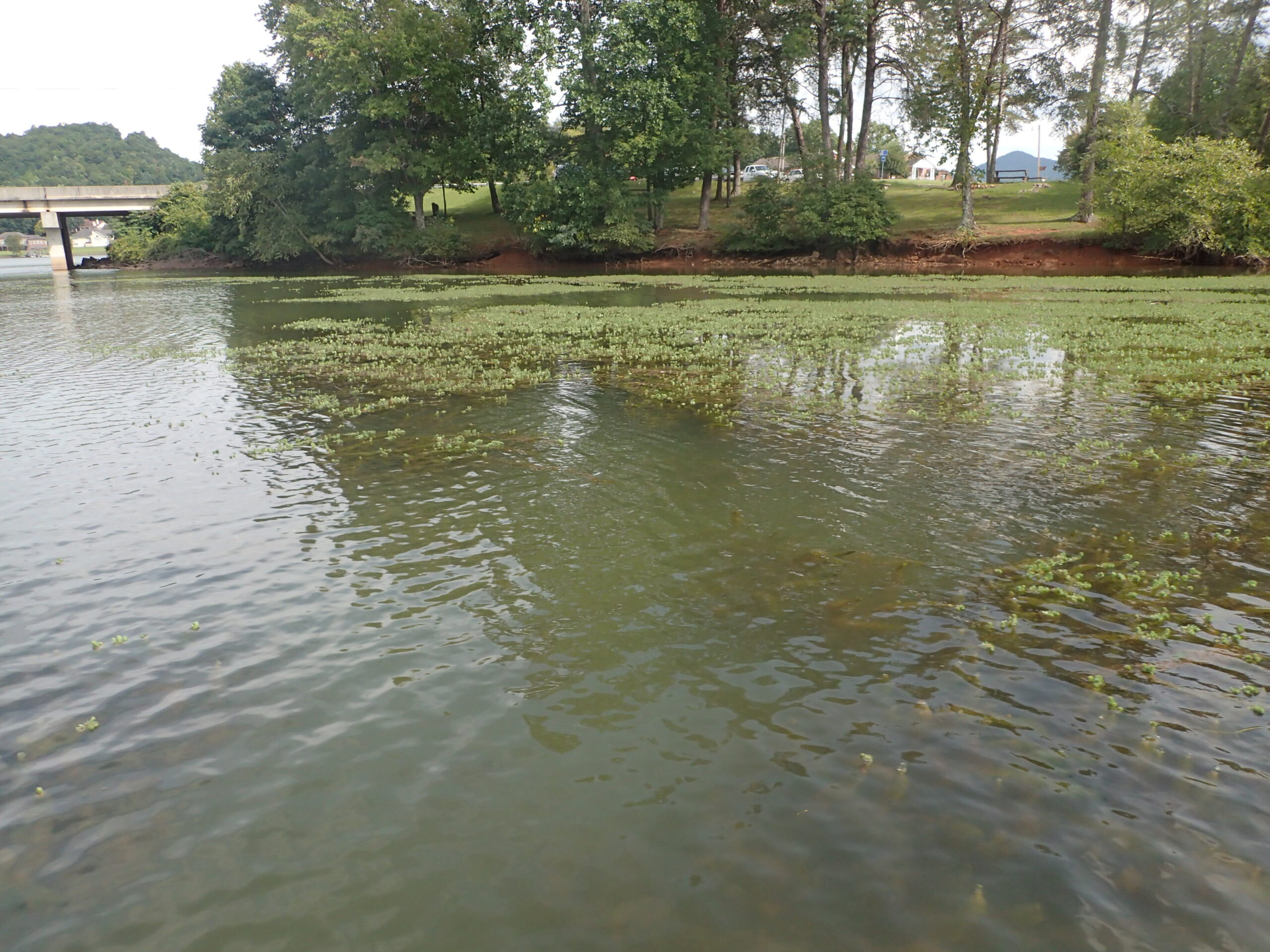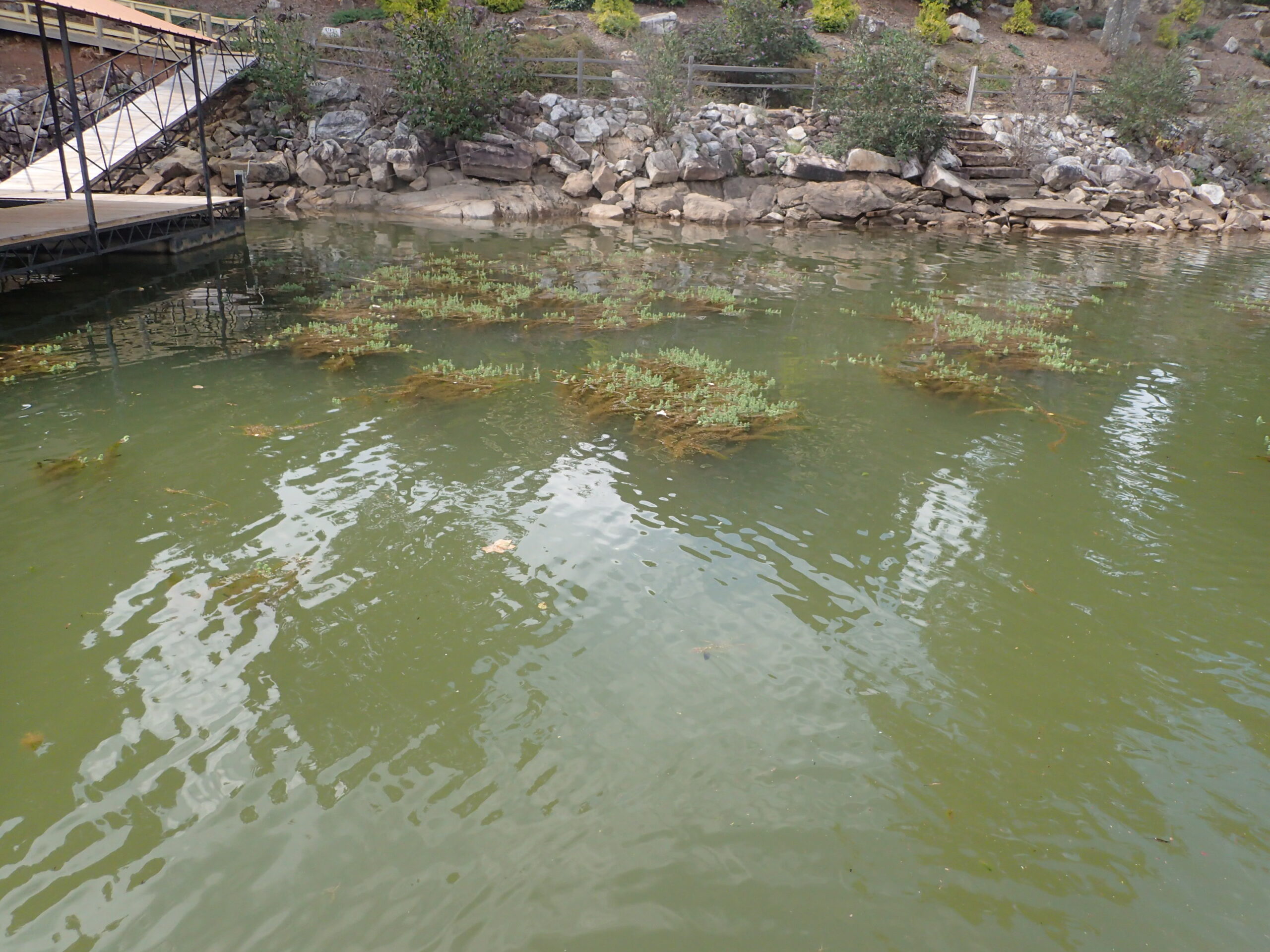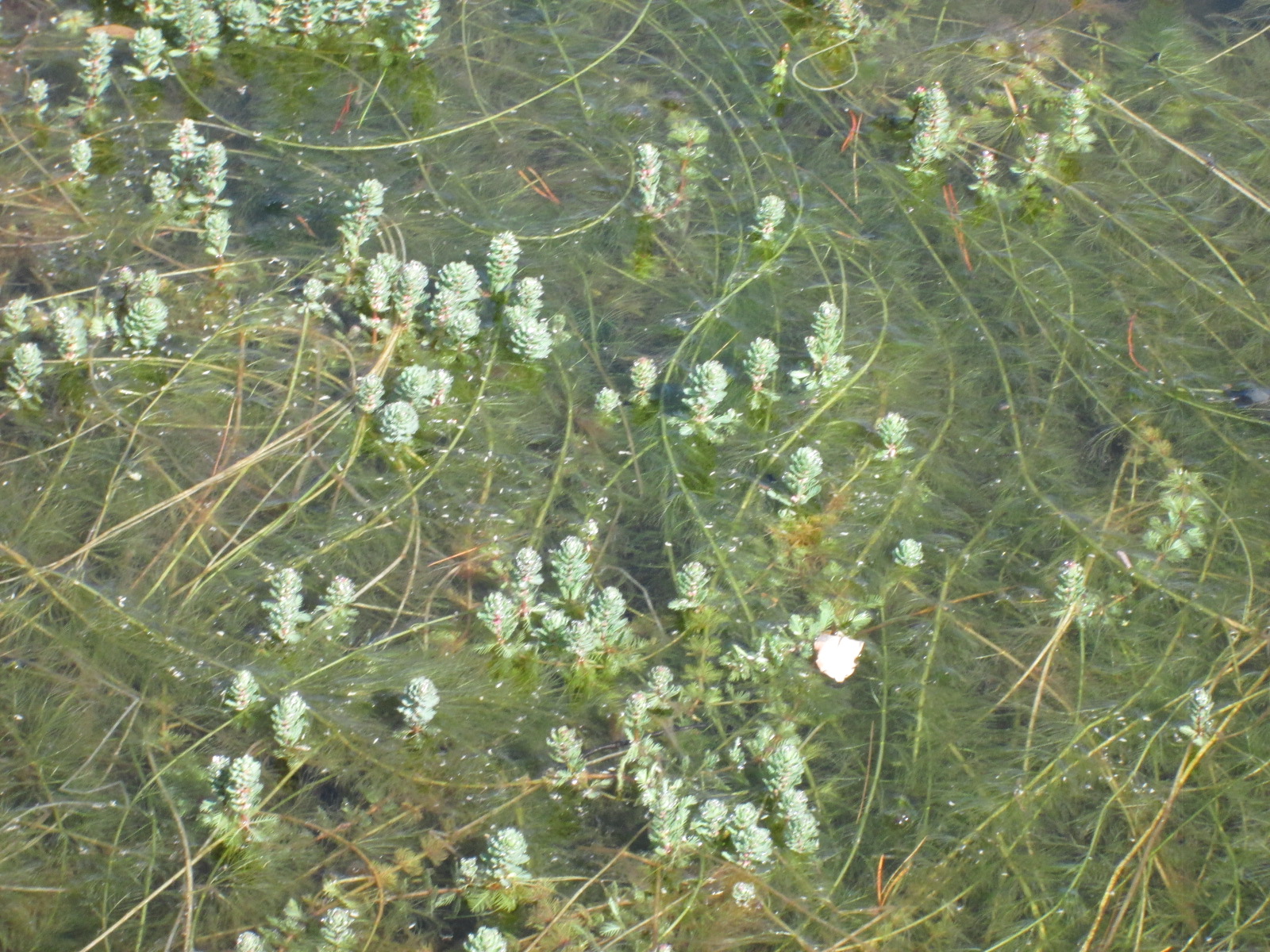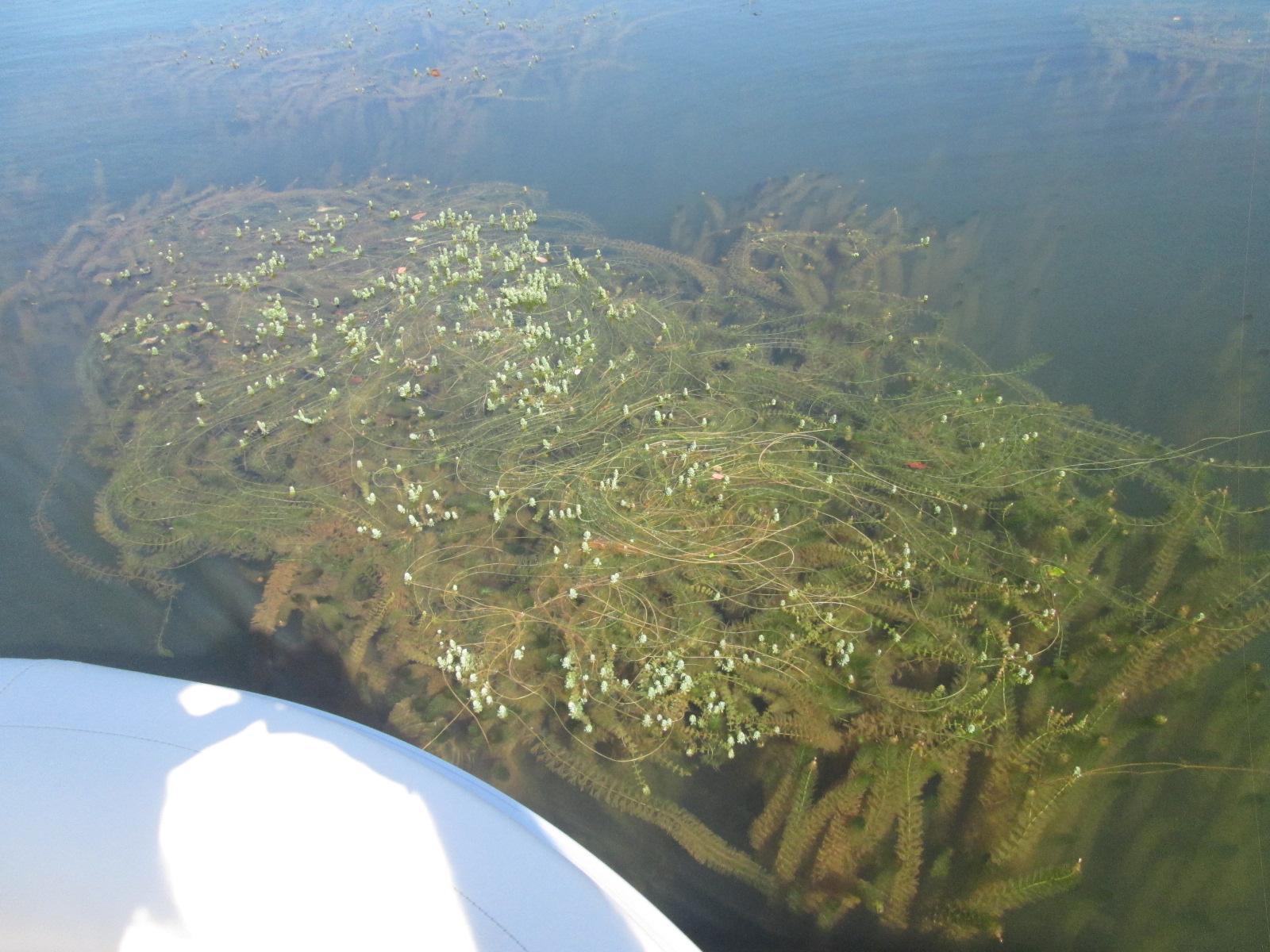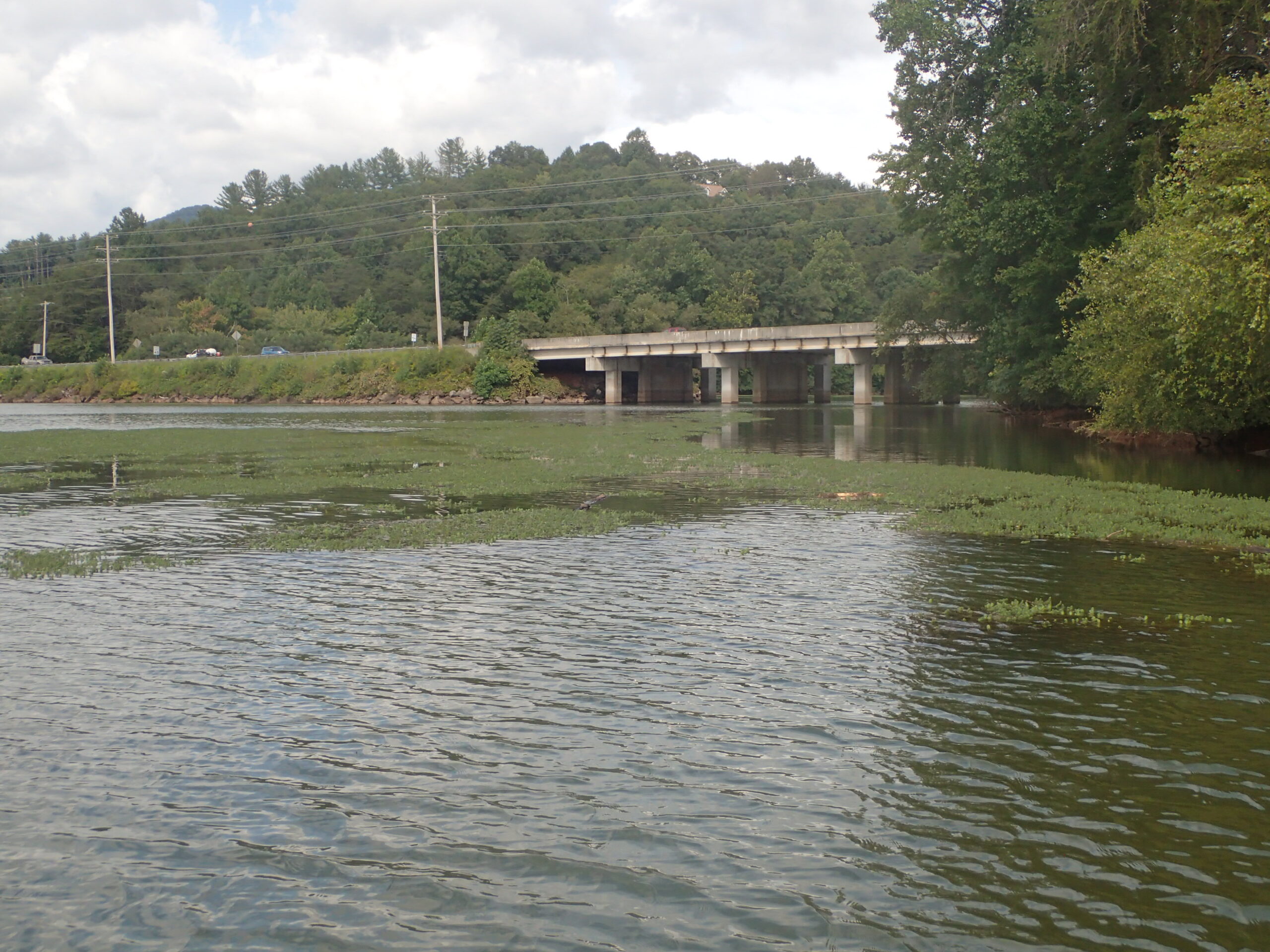Controlling Nuisance Aquatic Weeds in the Headwaters of Lake Chatuge
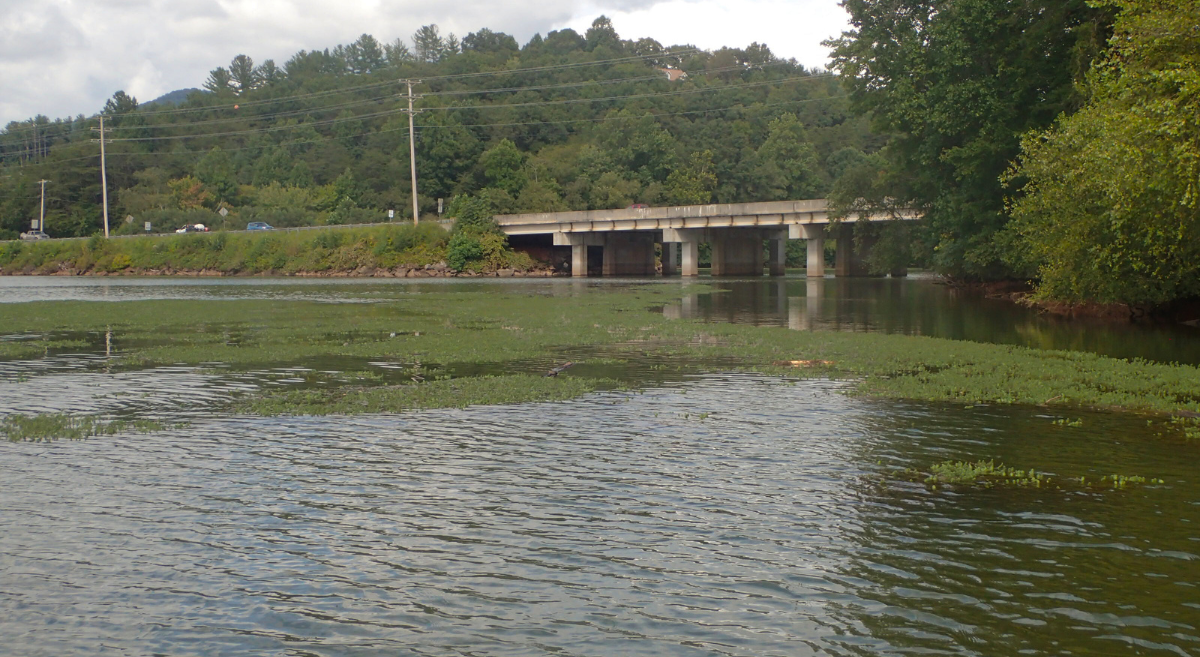
Pictured above: Parrot feather infestation in the south end of Lake Chatuge near the US Hwy. 76 bridge in Towns County, Georgia.
For the last two summers, noxious weeds have been an unwelcome presence on the south side of Lake Chatuge in and around the Macedonia area of Towns County, Georgia. The primary culprit, parrot feather (Myriophyllum aquaticum), is native to tropical parts of South America, Australia & New Zealand. Despite its highly invasive tendencies in natural waters, it is still actively promoted and sold for use in ponds and aquariums and has been accidentally introduced to waterways all over the US from these sources. Like many invasive aquatic species, parrot-feather can be transferred to new lakes on boats and other watercraft. Flourishing in warm water conditions, it grows rapidly in late spring and summer, creating huge mats of rooted vegetation that can cause recreational and navigational issues.
Photo: Parrot feather (Myriophyllum aquaticum), an invasive aquatic weed.
Chatuge Dam and Reservoir are owned and managed by the Tennessee Valley Authority. Earlier this year, TVA completed a thorough survey of aquatic plants in Lake Chatuge. As we know, they again found an infestation of invasive parrot feather in the headwaters of Lake Chatuge.
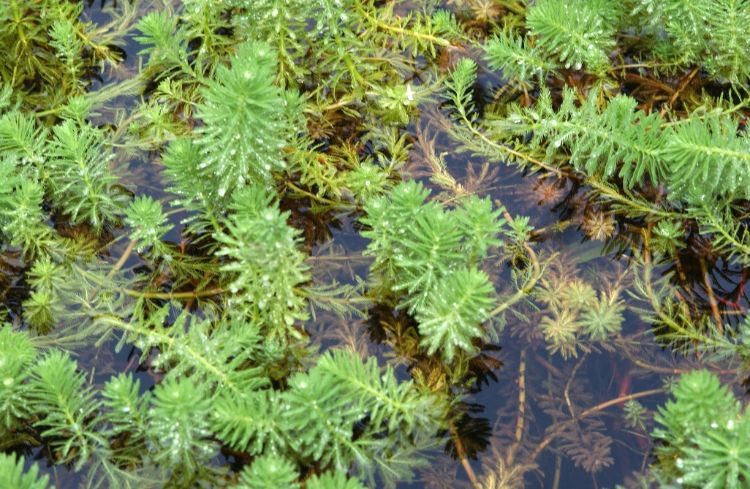
The agency is currently conducting an in-house environmental review to evaluate the use of grass carp and/or chemical control for managing the weeds. The study likely won’t be completed until summer 2024. If grass carp are found to be a useful control measure, the strategy will then need to be approved by Georgia Department of Natural Resources (DNR). If DNR approves the stocking, TVA will implement the stocking program and monitor the outcome.
However, due to a Tennessee Valley-wide scope of operations, TVA only provides chemical control of aquatic plants in “developed public-access areas like boat ramps, swim beaches, and courtesy piers on its reservoirs on an as-needed basis when recreational use and/or access become seriously hindered.” (Read more about TVA’s treatment of aquatic weeds here.) Since the infestation in Lake Chatuge doesn’t currently meet these parameters, if chemical control is the only recommended option, it will be up to homeowners, residential communities, and/or the county to control the infestation. The growing season is almost over this year, but MountainTrue is working in consultation with TVA to develop specific recommendations for homeowners and residential communities to control the parrot feather next year. We will host public information sessions early in the season and will have referrals for licensed applicators working in our area.
Attempting to control parrot feather by manual or mechanical methods is likely to spread the plants further and should only be conducted in small, contained water bodies, not in a large reservoir like Lake Chatuge. Even driving through parrot feather in a boat can break off small pieces, which can drift and take root in another location!
For homeowners and residential communities who don’t want to wait for the completed environmental review and possible grass carp stocking program – which may not even be implemented until late summer 2024 or later – TVA advises that commercial pesticide applicators with an Aquatics rating on their license can be hired to apply aquatic herbicides to control infestations around private docks and in small coves. When aquatic herbicides are applied according to their label by a licensed professional, they pose no threat to people, pets, fish, birds, or any other wildlife, short or long-term. In the case that there is a one-day swimming restriction or any other restriction, a licensed herbicide applicator will always communicate this to anyone with access to the water, as well as posting any relevant signs. The applicator will also know about the restrictions associated with distance to a public drinking water intake. While a complete listing of Georgia-licensed commercial applicators can be found here, keep in mind that there are several categories of applicators; not all of them have the Aquatics certification.
Neighboring Lake Burton in Rabun County has also had an infestation of parrot feather for several years. In a statement issued by Georgia Power in August 2020, these three companies were listed as “known firms successfully used by other members;” however, homeowners hiring one of these or another licensed commercial applicator are advised to always check references:
- Southeast Consulting – https://www.scsforestry.com/
- Solitude Lake Management – https://www.solitudelakemanagement.com/
- AquaDoc – https://www.aquadocinc.com/
Homeowners should refrain from undertaking chemical control on their own using AQUACIDE pellets or similar products that were primarily developed for recreational ponds. Product information warns of this environmental hazard: “Treatment of dense weed areas can result in oxygen depletion due to decomposition of dead weeds. This oxygen loss can cause fish suffocation,” leading to fish kills.
Finally, it’s important to remember that there are native and beneficial aquatic plants in Lake Chatuge, which fish and other aquatic life rely on for food and cover from predators. Homeowners should work with professionals to be certain that they have a nonnative invasive plant before undertaking any management activities.
If you have questions, contact MountainTrue Western Region Program Coordinator Tony Ward at tony@mountaintrue.org or 828-837-5414 ext. 3.
Tips for controlling the spread of invasive plants:
Keep it Clean—Remove all plant material from boats, trailers, bilges, live wells, and any other equipment. This will prevent troublesome aquatic species from being introduced into other lakes.
Native Water Gardening Only—Please plant only native species around shorelines. While nonnative species like ornamental lilies and water hyacinth are beautiful, they will quickly spread if introduced into the river.
Drain and Dry—When visiting reservoirs with known invasive plants, make sure all equipment is dry and free from fragments. Even completely dry fragments have the potential to grow once submersed again.
No Dumping! —Please refrain from dumping unwanted aquarium or water garden plants into nearby streams and rivers. Dispose of any unwanted plants in the garbage.
*Click on the images of parrot feather below to expand them*

